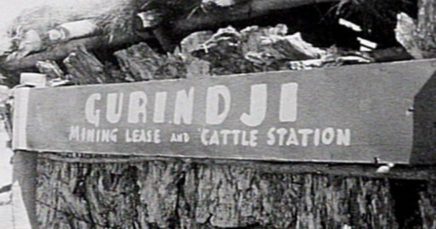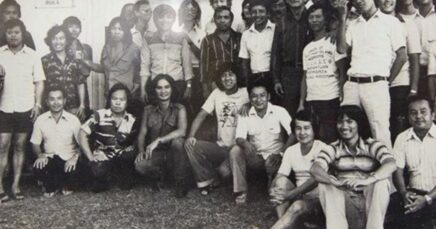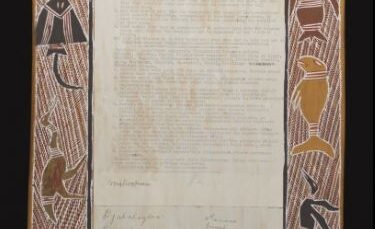Watch Video
Read Article
Times are tough right now, and it can be easy to lose hope. But Australia’s history is filled with inspiring stories of working people coming together in their unions and taking action, overcoming major obstacles to change the country for the better. This series tells some of these stories of Hope & Change.
Muriel Heagney was an extraordinary unionist who led a 60-year long campaign for equal pay for working women. Despite all the challenges she faced, she never wavered, and she never gave up. This is her story.
Muriel was born in 1885 in Melbourne and by the early 1910s had become a committed trade unionist. She spent six decades campaigning for the rights of working women, particularly for Equal Pay. During the First World War she was the only woman clerk at the Defence Department by day, and an ardent campaigner against conscription outside working hours.
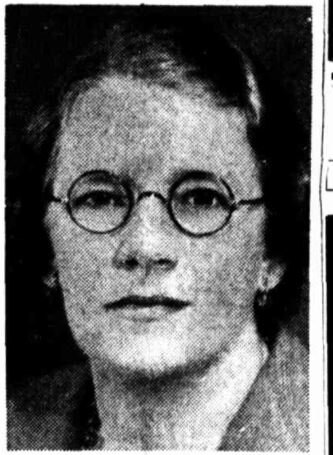
Through the 1920s and 1930s she was a prominent leader of union women and an advocate for workers’ education. This included her work for the Australian union movement in preparing submissions to the royal commissions on the basic wage in 1923 and 1927, and work for the Clothing Trades Union for its arbitration court submissions seeking equality in the basic wage for working women.
Her growing reputation as a union researcher saw her take up a brief posting with the International Labor Organization in Geneva, as well as represent the Trades Hall Council at the first British Commonwealth Labour Conference, held in London.
During the dark years of the Great Depression Heagney remained an active campaigner for working women. She helped establish the Unemployed Girls’ Relief Movement in 1930, at a time when few were paying attention to the plight of young unemployed women.
In 1935 she wrote a celebrated pamphlet titled Are Women Taking Men’s Jobs? in which she busted sexist myths of the time and prosecuted the case for equal pay for women. As she wrote:
“…women consciously demand recognition of the fact that woman’s right to work rests not on the number of her dependants, nor on the fact that she does or does not compete with men, but in the absolute right of a free human being, a taxpayer and a voter, to economic independence. As such, she will not suffer dictation as to the intimate concerns of her life.”

In 1937 she was a leading light in the foundation of the Council of Action for Equal Pay – a group of women unionists who campaigned against sexism.
It wanted to change attitudes in the union movement and to take action against sexism in the workplace and broader society. This group’s activity led to the ACTU’s policy supporting equal pay, which was adopted at our 1941 Congress.

In 1941, Australia was at war. Large numbers of men were joining the military, and women were entering parts of heavy industry they hadn’t been able to before the war.
But despite providing a vital service to the war effort through this work, they were not paid at the same rate as the men who had done these jobs.

Through the war years unions campaigned for increases in women’s wages – with some really important successes.
Muriel was directly involved in many of these campaigns. From 1943 to 1947 she was an organiser for the Amalgamated Engineering Union – and during the Second World War many of the women who entered this industry did win wage increases.
But once the war ended, these gains were taken away. So the union campaign for equal pay continued. Muriel continued to campaign and write in favour of equal pay.

In 1969 an ACTU case at the Arbitration Commission saw equal pay for women who did the same work as men.
In 1972, another ACTU case saw equal pay for comparable work – addressing the systematic sexist undervaluing of occupations predominantly made up of women.

In 1974, the National Wage Case granted women equality in the national minimum wage.
Muriel died one week after this case – one week after seeing equal pay become a recognised legal right.
Since then unions have continued this campaign to make sure equal pay is not just a legal right, but the actual experience for women workers.
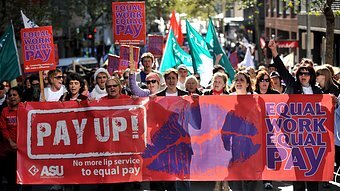
Muriel Heagney made extraordinary change against incredible odds. She is a hero of our movement, and today we remember her, and continue the fight for gender equality in her spirit.

